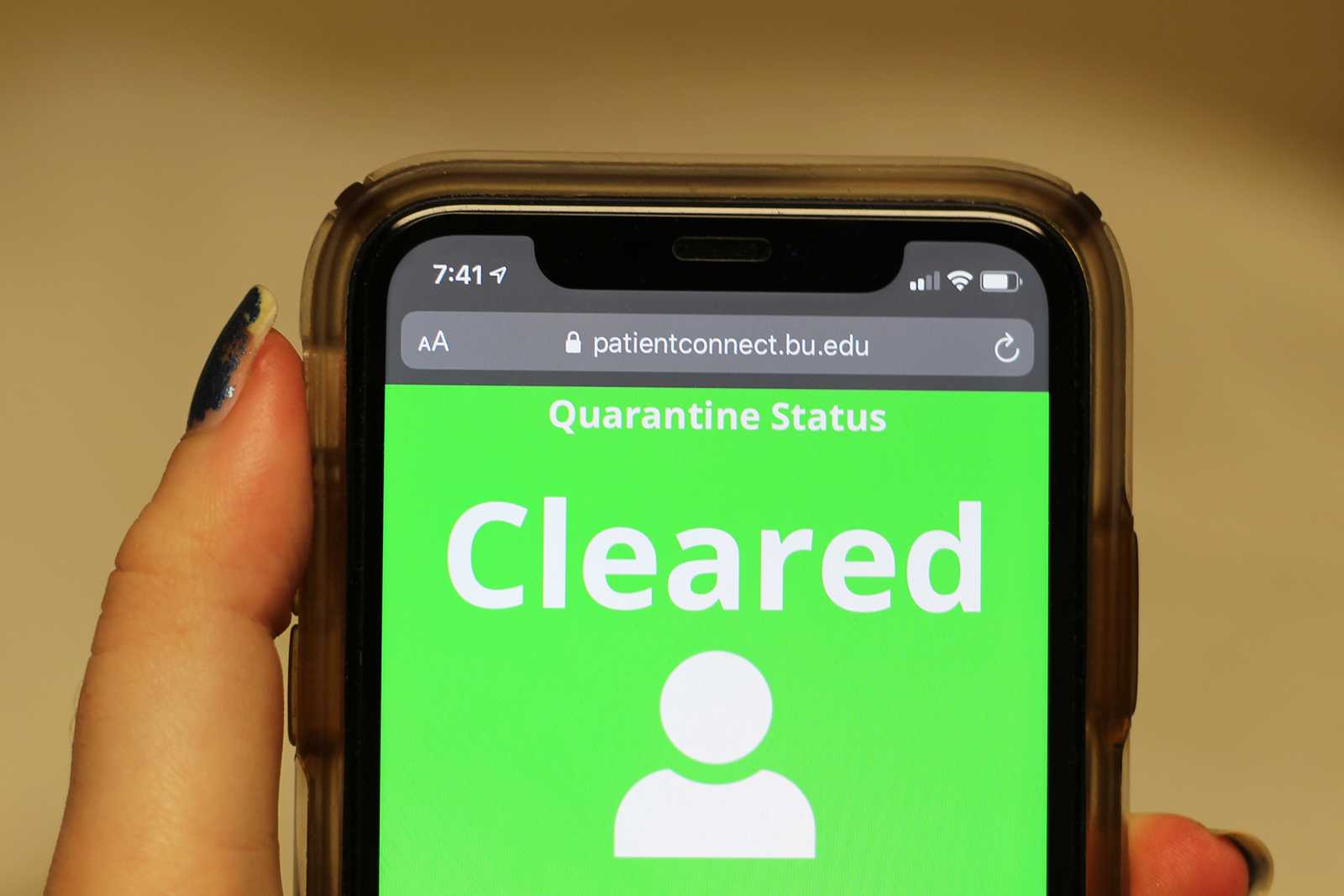Starting Thursday, Boston University will begin checking students’ compliance status before allowing them entry to campus spaces, senior leadership announced in an email to students Tuesday.
The effort to regulate students’ COVID-19 compliance more strictly would require students display their compliance status through the colored badges found on the Patient Connect portal.
These badge checks will occur at entrances of buildings such as the George Sherman Union and dining halls. BU spokesperson Colin Riley said students can expect to show their badges at “any BU property,” including outdoor spaces where people gather.
Riley said the mandate is due in part to the recent spike in the number of positive COVID-19 cases on campus. He added cases may have risen as a result of the long weekend.
“We anticipated additional communications,” Riley said. “We would love to have had those additional communications being, ‘My goodness, everyone has done so well. We’ve had a week of zeros.’ That hasn’t happened.”
The University, Riley said, is still locking down all the areas that will participate in this mandate.
“We just need to look at it and figure out what makes sense,” Riley said. “I know they’re doing that.”
Riley wrote in a later email that a University team has been doing practice “walk-throughs” throughout the month to test the process, and that the trial was a success. Employees from the Dean of Students office are ready to start work at additional locations.
This check aims to officialize a way of promoting compliance, Riley said, because the University doesn’t want to put students in the position of checking each other’s compliance statuses.
The University also sent an update to faculty and staff Tuesday encouraging professors to ask students to show their green badges before entering classrooms, and asking that managers of departments that serve students to do the same.
The email also stated DOS, the Howard Thurman Center and the Fitness and Recreation Center have successfully initiated this practice.
The University previously told professors in August they would have the option to check student badges upon arrival to in-person classes.
Riley said there are currently no plans to mandate that professors check student compliance at the door.
“It’s their classroom,” Riley said, “and they will know we’re asking them to participate.”
Jason Campbell-Foster, senior associate dean of students, said BU has been looking for ways to incentivize student compliance, particularly among those living off campus.
He wrote in a later email that these students — whether they live off campus or leave for a time with the leniency provided by Learn from Anywhere — have proven statistically more likely to become non-compliant through forgetting to complete symptom attestations.
“We’re always thinking about ways to engage our off campus students, particularly with regard to COVID and compliance,” Campbell-Foster said. “If you don’t live on campus but you still access campus, we have a responsibility to to make sure that you’re in compliance and doing what you are required to do.”
BU is considering implementing contests as a motivator to remain compliant, Campbell-Foster added. One example, he said, could be a compliance-rate contest between off-campus residences on different streets near the University. Plans, however, are not yet finalized.
“We’re trying to think about ways that we can make compliance something that people are striving for,” Campbell-Foster said. “How can we make this into a friendly competition that encourages students to do what they need to do to stay in compliance?”
Riley said it’s up to students to ensure personal compliance. He said students should set reminders for daily attestation surveys.
“Reminders are very helpful,” Riley said. “That’s why people have alarm clocks in the morning.”






















































































































